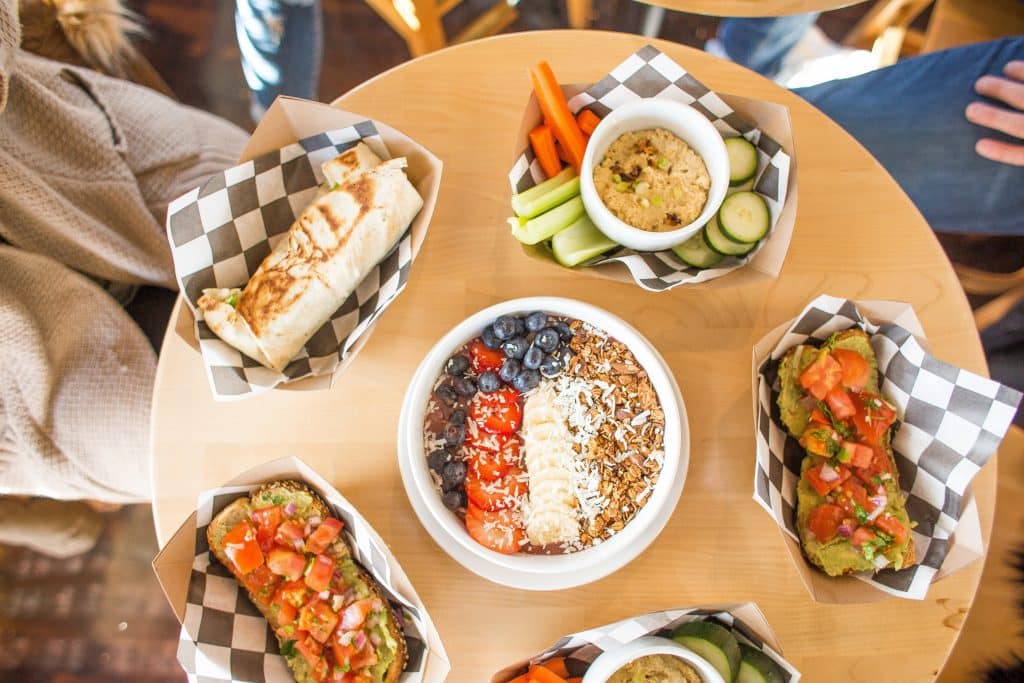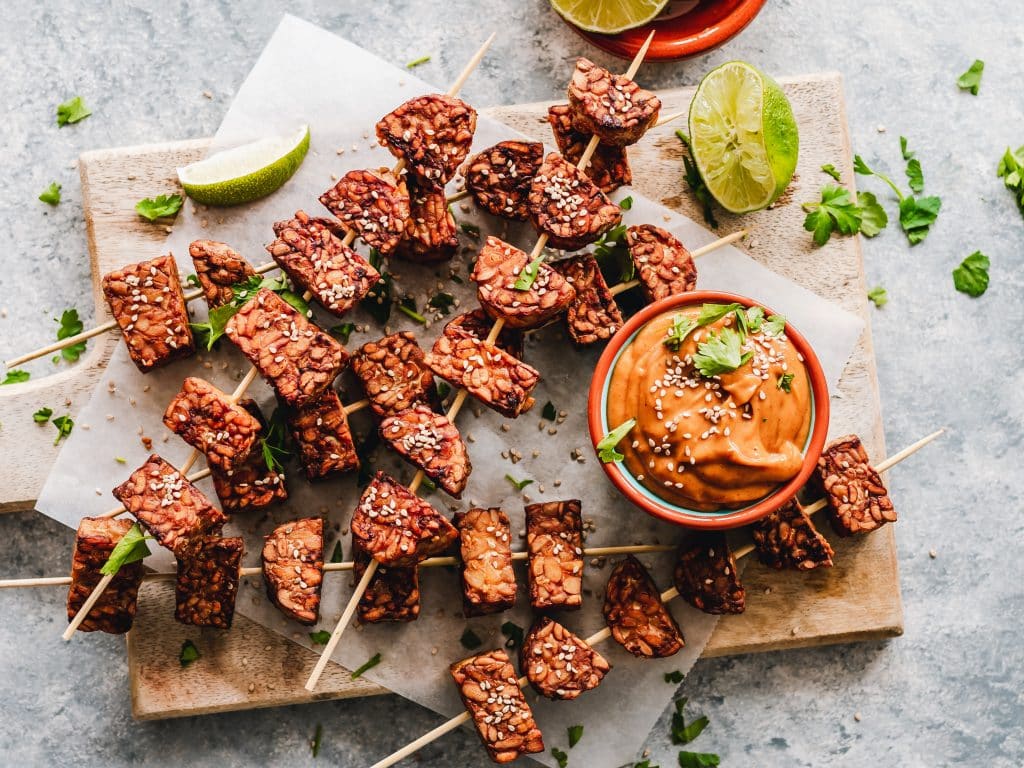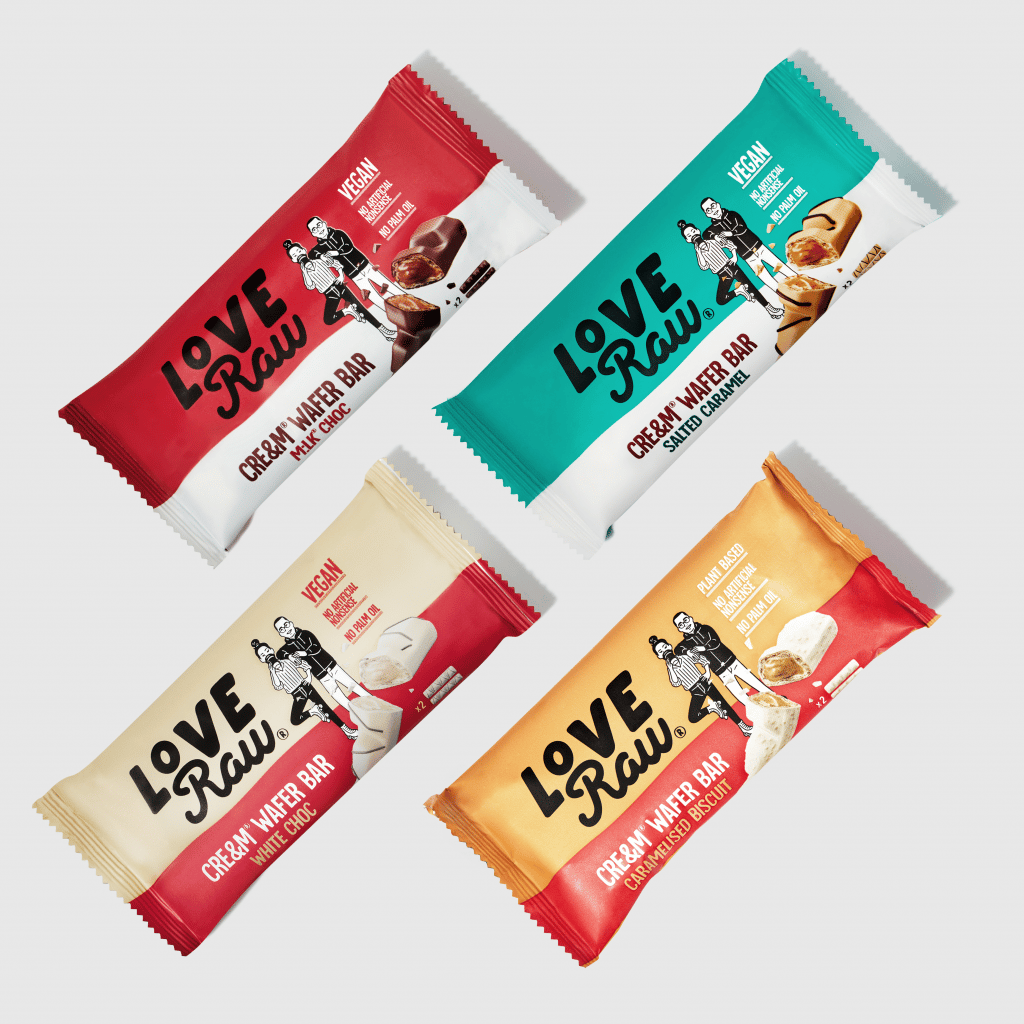Part I: Veganuary, Flexitebruary, and Easter
Around the world, society is linked by time-bound and seasonal events, much of them centered on food. Although these differ from country to country, much of Europe and the United States share a jam-packed calendar of occasions. From January through to December, people hold food-oriented celebrations for Easter, Thanksgiving, and Christmas (among others), while the coming of summer sees people pulling out their BBQs, and autumn has orders of pumpkin-spiced foods skyrocketing.
In recent years, as the plant-based movement has gained popularity, we have also seen the creation of new celebrations and ‘challenges’, like Veganuary and Meat-Free May which revolve around plant-based food. Led by non-profits, they seek to encourage consumers to give up animal-based food and drink for a set period of time, dipping their toes into the plant-based world.
For businesses looking to target the ever-growing number of consumers eating plant-based products, engaging with these events, celebrations, and challenges is integral to boosting sales, as well as enhancing your company’s reputation.
So, what are the most important seasonal, monthly, and yearly promotional events that businesses should focus on to maximize plant-based sales throughout the year? And what strategies should you implement around these events to do so? In this three-part series, we will investigate eight key moments throughout the year for plant-based promotions, and discover how best to approach each event. Let’s begin with January–April, which sees people commemorating Veganuary, Flexitebruary, and Easter.
Veganuary
What is Veganuary?

Veganuary is a global phenomenon, which, each year, sees hundreds of thousands of people around the globe signing up to forgo animal-based products for the month of January. In 2022, the challenge saw 660,000 people worldwide pledge to eat plant-based from a staggering 228 countries and territories.1 During the first month of the year, over 1,540 new plant-based products and menus were launched, and 98% of surveyed participants said they would recommend Veganuary to a friend.2 Dozens of brands and retailers formally took part, while over 75 large-scale businesses participated in the workplace challenge.3 In other words, it’s a trend that shows no sign of slowing down, and smart businesses are taking notice.
“Why do people sign up for Veganuary? Health, environment, and animal welfare,” explains Veganuary Co-founder Matthew Glover in an interview with ProVeg. But since launching in 2014, it’s become a huge opportunity not just for individuals but for businesses too. “Retailers are now keen and excited – there are new opportunities and higher margins. Price, convenience, and taste are cited as the top three things to focus on and I agree with that,” continues Glover.
Over 1,000 companies took part in Veganuary’s 2022 campaign, with multiple business benefits being reported4:
- Deliveroo saw a massive 117% growth in vegan food orders in the UK and a 153% rise in searches for vegan food on the app compared to December 2021.
- Wicked Kitchen’s plant-based range grew 127% in volume.
- Richmond Foods saw a 42% uplift in sales across the Richmond meat-free portfolio, with their meat-free burgers seeing an 82% uplift in sales.
- Meatless Farm’s mince experienced a sales increase of 21%, while their frozen products in Morrisons sold at a rate of one product every 35 seconds during store opening hours.
- High-street restaurant chain Las Iguanas saw a 400% increase in uptake of their Veganuary promotion.
Veganuary just keeps getting bigger at Las Iguanas. Our OGGS sticky toffee pudding has been an instant success on the special Veganuary hotlist menu and another winner has been our spicy-as-anything All Plant No Goat Curry, made with jackfruit.”
As the above stats show, Veganuary presents big opportunities for businesses, retailers, and foodservice operators. It’s an ideal time to tap into a demographic of first-time samplers who might be averse to purchasing plant-based products at other times of the year, as well as flexitarian consumers looking to up their consumption of meat- and dairy-free products.
Businesses report record sales of their vegan offerings in January due to the buzz around the campaign, which has led to Veganuary becoming a huge feature in the retail calendar for businesses around the world. The ‘Veganuary Effect’ is a free marketing tool that gives businesses an opportunity to launch plant-based offerings and shout about their existing ranges after Christmas.”

While not everyone who signs up for Veganuary stays vegan for the long haul, the challenge does see a great number of consumers maintaining at least some of their plant-based shopping behaviors long-term.
In their 2022 post-challenge survey, Veganuary found that 74% percent of consumers who did not stay vegan planned to at least halve their intake of animal products going forward. On top of this, 76% were very or extremely likely to try plant-based food again in the future.5
Commenting on the results, Veganuary’s International Head of Communications, Toni Vernelli, said: “These incredible results show that Veganuary is so much more than a one-month pledge, as taking part leads to lasting diet change for most participants. With 83% of our 2022 participants planning to at least halve their intake of animal products permanently – including 36% who plan to stay fully vegan – Veganuary really is driving positive change for the planet, people, and animals.”
How can businesses support Veganuary participants?
Participants of Veganuary will be looking for tasty, convenient, and reasonably priced plant-based foods to consume during the month of the challenge. Producers of plant-based products can support participants by fulfilling these focus points, using the increased demand in January as a springboard for their plant-based ranges.
There are many ways to make Veganuary appealing and easy for consumers, both online and offline. For example, hosting Veganuary-themed events, offering discounts and special promotions, using creative POS and out-of-home advertising, and sharing vegan recipes.”
Recipes are critical in our content strategy both from an SEO [search engine optimisation] point of view, and a consumer value point of view. Recipe content does incredibly well on digital platforms and is a key way to get consumers to visualize the application of the products.”
It’s also important to educate yourself on the aspects of a plant-based diet that past Veganuary participants have most struggled with. For example, 26% of 2022 participants said that dining out was the biggest challenge, and 40% reported that cheese was their most missed product during Veganuary. Foodservice providers and dairy-free cheese producers should recognize these difficulties as prime opportunities for supporting consumers, thus increasing orders and sales.
Case Study: Garden Gourmet
Nestlé’s Garden Gourmet is a formal Veganuary partner. In 2022 they ran a high-profile advertising campaign aimed at all eaters, via TV, streaming, and social channels. Their ‘Whatevertarian’ campaign playfully called on “everyone, whether you are a Vege-tarian, Flexi-tarian, Messy-tarian, Deluxe-tarian or Spicy-tarian,” to enjoy plant-based eating with their range.

Nestlé’s advert highlighted the taste benefits and inclusivity of their plant-based range
Nestlé Professional also promoted their vegan and vegetarian range to their foodservice clients ahead of Veganuary. They encouraged restaurants and pubs to sign up for the official campaign and provided free marketing advice to help foodservice professionals promote the new products and integrate them into traditional dishes.

Game of Thrones talked a lot about winter coming, but seemed to forget Veganuary. Good thing Nestlé spotted the gap.
To support both flexitarian consumers and mainstream food services in trying their products, they provided a wide range of easy-to-follow recipes on their website.
Social media can also be a useful tool for brands looking to get involved in Veganuary, as animal welfare charity Viva!’s Rachel Stone explains: “It would be great to see an increase in businesses hiring influencers to produce useful educational content about veganism, such as the vitamins to be mindful of or the things you need to avoid. Veganuary can feel quite sales-heavy, and brands that stand out by producing content that is practical beyond just providing a product will stand out from the crowd. Regular social-media interaction with participants is a great way to keep them engaged.”
You can also use social media to increase consumer engagement with your brand and products before January.
Stone adds: “Making announcements in advance can be a good way to entice customers before Veganuary has begun, so they’re already interested in products and don’t just discover them by chance.”
We do put extra marketing focus into key strategic periods like Veganuary. Where it makes sense, we partner with retailers across their in-store and digital channels, and we do have a strong focus on influencer and social-media marketing in all our regions. Food Service is also seen as critical in terms of growth of the category and brand awareness. We have done this very successfully in the past, particularly in South Africa. Each market is different, but across the board retail relationships are important.”
Action:
- Brands, retailers, and foodservice providers should plan heavy discounts and product/menu launches to maximize the impact of consumer open-mindedness and awareness during Veganuary.
- Run Veganuary-themed events, offering special offers and discounts on your plant-based products and dishes in the weeks leading up to, and during, January.
- Focus your product launches on foods that past Veganuary participants have stated they miss the most, like cheese.
- Create a range of easy-to-follow, tasty recipes that use your products on your website and product packaging.
- Foodservices and brands should use appropriate plant-based labels and icons on products and dishes to make it easy for consumers to identify plant-based options.
- In the months leading up to Veganuary, develop relationships with influencers who can use your product to increase visibility and interest.
- Get in touch with ProVeg International in the months leading up to Veganuary to discuss your product development and marketing strategies, to ensure that you use Veganuary to drive sales.
ProVeg is the official NGO partner of Veganuary in South Africa. Our team organizes a month-long program of restaurant events and community outreach, as well as extensive consultancy advice for businesses looking to stock and promote more plant-based options throughout the month.
“Our research shows that the health benefits of a plant-based diet, and then the environmental benefits, are the main reasons that South Africans are becoming interested in moving towards a more plant-based diet,” explains ProVeg South Africa Director Donovan Will.6
We work with organizations globally, so reach out to us at [email protected] to find out how ProVeg can help your business prepare for Veganuary.
Flexitebruary

It’s worth noting that Nestlé’s ‘Whatevertarian’ campaign ran until mid-February and that some retailers are keen to extend the Veganuary benefits further. In March 2022, UK retailer Iceland was granted a trademark for the term ‘Flexitebruary’ and plans to brand its extensive flexitarian-oriented range of plant-based and conventional products with the label in the future.7
Iceland hopes the campaign will encourage shoppers to swap out some of the meat products they buy from the store with plant-based alternatives, in February and beyond. While ‘Flexitebruary’ is new to the chain, its approach of targeting flexitarians is not. Its focus on flexitarians is part of the reason why its No-Meat brand is doing so well in the plant-based sphere, having recently been bought by The Livekindly Co.
Meeting the needs of the growing vegan, vegetarian, and flexitarian markets will be integral to our food development in the future, and we will continue to innovate using plant-based ingredients.”8
Why extend Veganuary into February?
As the results of Veganuary’s 2022 post-participant survey show, not everyone who takes part in Veganuary finds the challenge easy; some people need a little bit more help.
Flexitebruary is a great way to continue the momentum built up during Veganuary, helping to normalize plant-based food and drink even further. It presents an ideal opportunity to increase the visibility of your plant-based products and help consumers to recognize them as being not all that different from what they’re already used to eating.
Action:
- Brands and retailers should extend Veganuary into February in order to help normalize plant-based foods, and to give more consumers a chance to make their dietary changes habitual.
Easter

In the months leading up to spring, it’s impossible to ignore the gargantuan stocks of Easter treats and marketing campaigns online and in stores. Indeed, Easter spending is big business – in 2021, 32.6-million people worldwide spent money over Easter weekend, forking out an estimated £810 million in total.9 In particular, sales of chocolate products boom at this time of year, with chocolate eggs being the most-purchased Easter treat by far.
As the number of people following plant-based lifestyles increases, and as the flexitarian population grows, interest in dairy-free chocolate is surging. Research from Mintel has highlighted the excellent potential for vegan chocolate throughout Europe – its survey found that over half of chocolate consumers in Spain (55%), 53% of those in France and Poland, 48% of those in Italy, and 44% in Germany, are interested in vegan chocolate.10 This interest spikes at key moments of the year, like Easter, when chocolate is more in demand.
Indeed, plant-based chocolate Easter eggs are catching up with the demand for dairy-chocolate ones, and are even surpassing some variants. In 2020, research from The Guardian revealed that one in 50 Easter-egg searches were for ‘vegan’ options, making them more popular in searches than dark chocolate dairy-milk eggs.
Mainstream brands have caught on to the increased demand for plant-based chocolate eggs, with some of the world’s biggest chocolate manufacturers now offering their own options. Mars Incorporated is one example, with the company’s chocolate product assortment now containing alternatives to all its best-selling dairy chocolate brands, including Galaxy, Bounty, Milky Way, and Topic. Another example is popular Swiss chocolate producer, Lindt Sprugli, which launched its own vegan range at the end of 2020, using oat milk to replicate the creamy mouthfeel of their cow’s milk chocolate.
With all this in mind, there’s never been a better opportunity, than now, for retailers and brands to offer plant-based Easter eggs. But how can you best capitalize on the opportunity for big plant-based sales at Easter? Focus on familiarity, indulgence, and price.
Fostering familiarity is something that plant-based chocolate producer LoveRaw has done very well. Its most popular product, the M:lk® Choc Cre&m® Wafer Bar, echoes a classic favorite dairy-chocolate wafer bar filled with delicious nutty cream. According to the brand, this product has been the catalyst for LoveRaw’s recent surge in growth, helping them to achieve such rapid growth and expansion.

LoveRaw Co-founder Rimi Thapar comments: “Familiarity with heritage chocolate products is important to consumers when transitioning to a flexitarian or plant-based diet. Our mission is to make delicious plant-based chocolate accessible to everyone, whether they’re vegan, ‘unvegan vegan’, flexitarian, or otherwise – without compromising on taste.”
In 2019, start-up Mummy Meagz made waves with their Chuckie Egg, which paid homage to a favorite classic consumer Easter treat, Cadbury’s Creme Egg. By fostering familiarity and focusing on indulgence, Mummy Meagz’s Chuckie Egg sold in stores at a rate of one every 30 seconds following the launch, and the brand has since implemented the product into their range all year round.11
We have lots of regular customers who are not vegan, purchasing our products. They buy us because they love the indulgent taste of our chocolate treats … Our products are vegan, but it certainly doesn’t mean our customers have to be.”
A key reason for consumer hesitation when it comes to plant-based products is the perception that they won’t taste as good as animal-based products.12 Thus, it is important for plant-based brands to produce and market products that successfully emulate the taste and texture of their animal-based counterparts.
Indulgence is a key credential for LoveRaw, as we know that the primary reason why consumers choose our products is taste. We deliver on indulgence by ensuring all of our products are made with high-quality ingredients to match the taste credentials of their dairy counterparts. We want to give flexitarians and ‘unvegan vegans’ the opportunity to enjoy their favorite heritage chocolate – without artificial nonsense, palm oil, and, in some cases, gluten.”
As well as familiarity and indulgence, price is an important point of contention, being one of the main motivations for flexitarian consumers to make plant-based purchases.
Mummy Meagz’s Meagan Boyle says: “Our aim is to offer our products at a competitive price, as we believe that the more we see reasonably priced vegan alternatives, the faster we can realize the potential for consumers to switch. The industry coming together to offer vegan alternatives is exciting and there is huge headroom to grow.”13
With the global vegan chocolate market worth an estimated $397.6 million, and forecasted to reach $1014.7 million by 2028, Easter offers the perfect opportunity for plant-based product producers to get involved.14
Action:
- Meet flexitarians’ needs by providing plant-based imitations of the traditional products they’re used to eating.
- Focus on indulgence by promoting great taste and texture in your marketing and merchandising.
- Brands and retailers should partner to offer affordable plant-based Easter eggs.
Conclusion

Businesses looking to target the ever-growing number of consumers eating plant-based products should take advantage of global food-related events and celebrations that take place throughout the year. Engaging with these events, celebrations, and challenges is integral to boosting sales, as well as enhancing your company’s reputation. For Veganuary, Flexitebruary, and Easter, here are the most important actions to bear in mind:
Veganuary
- Use heavy discounts and new product/menu launches to maximize the impact of consumer open-mindedness and awareness during Veganuary.
- Run Veganuary-themed events, offering special offers and discounts on your plant-based products and dishes in the weeks leading up to, and during, January.
- Focus your product launches on foods that past Veganuary participants have stated they miss the most, like cheese.
- Create and display a range of easy-to-follow, tasty recipes that use your products on your website and product packaging.
- Use appropriate plant-based labels and icons on products and dishes to make it easy for consumers to identify plant-based options.
- Develop relationships with influencers who can use your product to increase visibility and interest.
- Get in touch with ProVeg International in the months leading up to Veganuary to discuss your product development and marketing strategies.
Flexitebruary
- Extend Veganuary into February in order to help normalize plant-based foods, and to give more consumers a chance to make their dietary changes habitual.
Easter
- Meet flexitarians’ needs by providing plant-based imitations of the traditional products they’re used to eating.
- Focus on indulgence by promoting great taste and texture in your marketing and merchandising.
- Brands and retailers should partner to offer affordable plant-based Easter eggs.
Make sure to check out Part II of this series, which will cover No Meat May, Meat Free Week, and BBQ season.
If you’re looking to learn how to attract more customers and instigate a greater number of plant-based purchases, ProVeg can help. Get in touch to talk over and develop your plant-based strategy by emailing us at [email protected].
References
- Veganuary 2022 Takes World By Storm, (2022). Veganuary. Available at: https://veganuary.com/veganuary-2022-takes-world-by-storm/. Accessed: 2022-10-07.
- Try Vegan This Month. Veganuary. Available at: https://veganuary.com. Accessed 2022-04-25.
- https://veganuary.com/harrods-superdrug-papa-johns-workplace-challenge/ Accessed 2022-04-25.
- Veganuary has participants in nearly every country | Veganuary
- Veganuary 2022: 83% of Participants Plan Permanent Diet Change, (2022). Veganuary. Available at: https://veganuary.com/83-of-veganuary-2022-participants-plan-permanent-diet-change/. Accessed 2022-10-15.
- South African Companies Embrace Veganuary, (2021). Proveg. Available at: https://proveg.com/za/press-releases/south-african-companies-embrace-veganuary/. Accessed 2022-04-25.
- Iceland Trademarks Term ‘Flexitebruary’ to Encourage Plant-Based Choices After Veganuary, (2022). Vegconomist. Available at: https://vegconomist.com/marketing-and-media/iceland-trademarks-term-flexitebruary. Accessed 2022-04-25.
- Iceland Trademarks Term ‘Flexitebruary’ to Encourage Plant-Based Choices After Veganuary, (2022). Vegconomist. Available at: https://vegconomist.com/marketing-and-media/iceland-trademarks-term-flexitebruary. Accessed: 2022-11-09.
- Easter Spending Set To Hit £810 Million, (2021). Finder. Available at: https://www.finder.com/uk/press-release-easter-spending-set-to-hit-810-million-falling-for-a-second-year-in-a-row. Accessed: 2022-11-07.
- A feast of innovation: Global Easter chocolate launches, (2017). Mintel. Availablel at: https://www.mintel.com/press-centre/food-and-drink/a-feast-of-innovation-global-easter-chocolate-launches-up-23-on-2017. Accessed: 2022-11-10.
- Webber, J. Vegan Cream Eggs arrive at Asda, (2021). Plant Based News. Aavilable at: https://plantbasednews.org/lifestyle/food/vegan-creme-eggs-asda/. Accessed: 2022-10-27.
- Lindsay Bumps quoted in Vegconomist (2019): Exclusive Ben & Jerry’s News! Available at: https://vegconomist.com/interviews/exclusive-ben-jerrys-news/ Accessed 2022-10-20.
- The Mother of Indulgence, pp16-17, (2022). Vegan Trade Journal. Available at: https://www.vegantradejournal.com/vtj/VTJ_ISSUE23/VTJ_ISSUE23.html#p=16. Accessed 2022-10-27.
- Vegan Chocolate Market Size in 2022, (2022). MarketWatch. Available at: https://www.marketwatch.com/press-release/vegan-chocolate-market-size-in-2022-new-report-of-91-pages-with-extensive-forecast-till-2028-is-projected-to-dominate-food-beverages-sector-2022-10-16. Accessed 2022-10-26.



